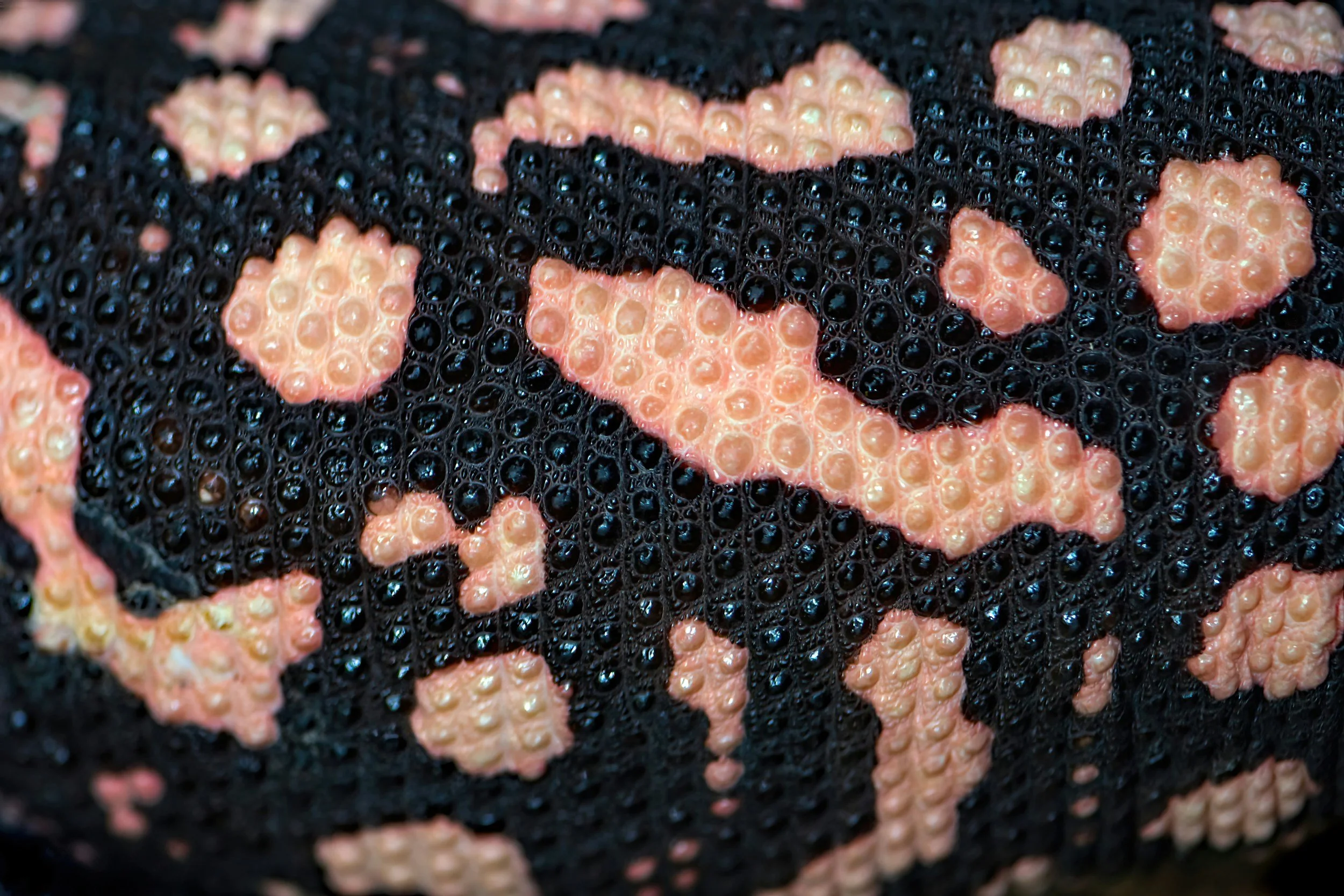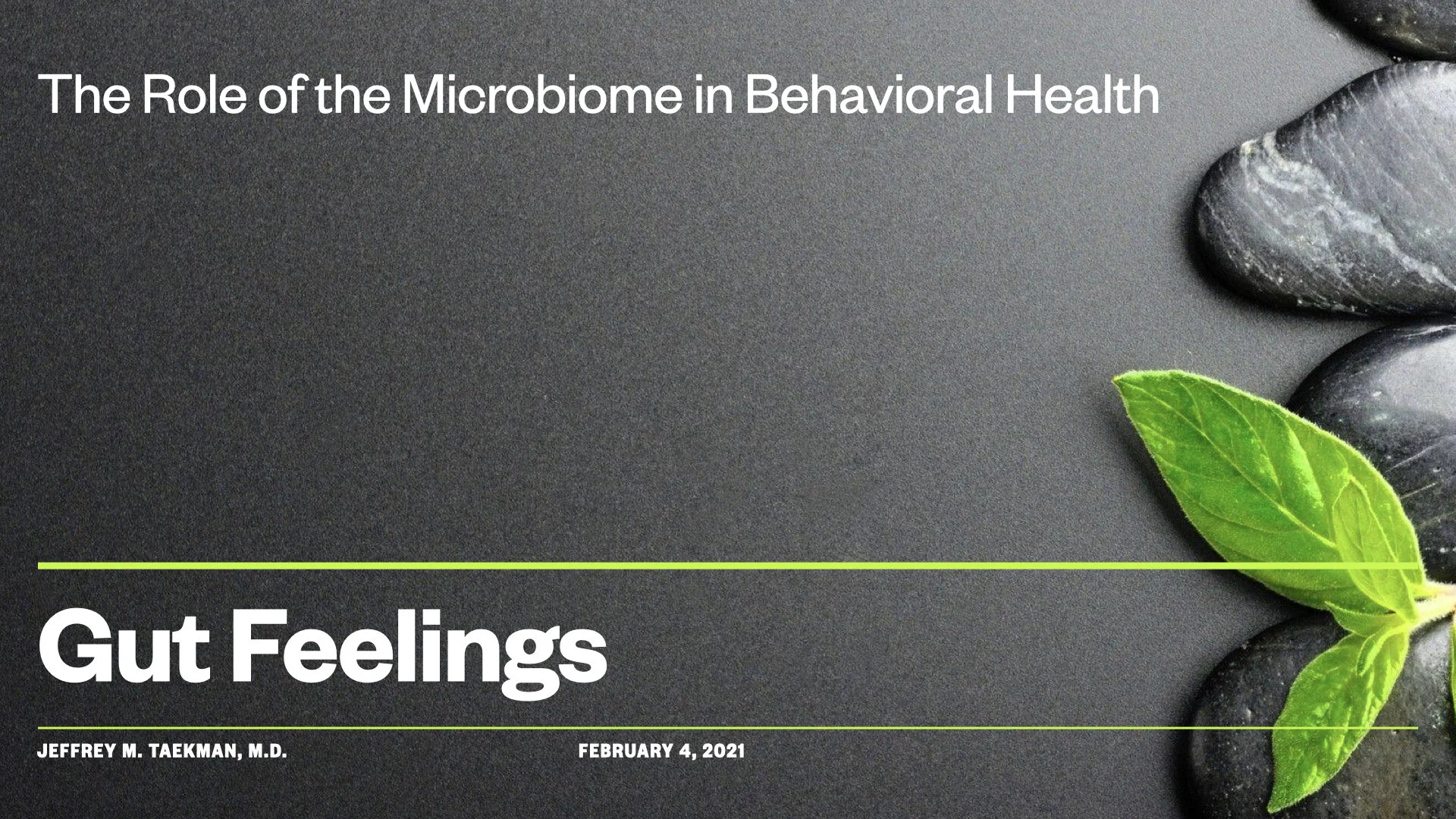Newsletters

For more newsletters, see the Archive Page.
Blog Content
The National Center for Complementary and Integrative Health (NCCIH) is a fantastic source of evidence behind many complementary and integrative health practices.
Integrative medicine can significantly impact health and wellness before, during, and after surgery. Although the impact of integrative medicine is significant, I'm particularly interested in the effects of food and the microbiome in the perioperative period.
I attended the two-day NIH Pain Consortium Symposium on Whole Patient Health. There were some engaging sessions. Interestingly, there was not a single session on the impact of the microbiome on pain--maybe someday!?! The two-day symposium had me thinking about simple, low-risk interventions anyone can do to help modulate their pain.
Since this was my birthday week, I found the recent article, The Two Choices that Keep a Midlife Crisis at Bay, quite interesting. The article is the entry from Arthur Brook's excellent recurring column called How to Build a Life.
On June 1 and 2, the NCCIH will offer a free webinar on Integrative Pain Management…..
With the technological understanding and wealth of the United States, one might think our longevity would be among the best in the world. It's not. In the U.S., longevity does not even remotely correlate with expenditures.
This week’s Economist includes Technology Quarterly. The topic? The Quantified Self…..
The National Center for Complementary and Integrative Health publishes a wealth of information online. This morning, I opened my mail to information on music and health.
Are you tired of carrying your original white Covid Proof of Vaccination card? I was. My card took quite a beating since I first folded it and tucked it into my wallet in March of 2021.
In iOs 15, it's now possible to digitize your Proof of Vaccination and carry the card in your Apple Digital Wallet. Importing your card will vary based on the location of where you have received your shot.
News shapes our views of the world and colors our opinions. Spending too much time in an information bubble (reading information from the same sources) gives us an incomplete picture of the complexities of an issue. Worse, the information may be used to manipulate our opinions.
This year has been full of changes for me. One of the things that ramped up into overdrive was fueling my curiosity. As a result, I increased my consumption of books, podcasts, and audiobooks. During these explorations, I stumbled upon the ZigZag Project.
I recently finished reading the phenomenal book, Why We Sleep, by Mathew Walker. Matthew Walker ) is a neuroscientist and professor of Psychology at UC Berkeley. He also has a role at Verily.
Why We Sleep was, hands-down, the best non-fiction book I read this year. I know quite a bit about the subject matter, yet every chapter taught me something new.
I know there has been a shortage of blog entries lately. I've felt guilty about not posting, but life has been getting in the way. The last year has been one of monumental personal and professional change. I'm currently on a "sabbatical" on the West Coast (in Dillon Beach). The ocean air, beautiful scenery, and close proximity to family and friends make me feel more like myself and inspire me to return to writing.
…..The report, entitled, Breaking the Cost Curve, is the Deloitte forecast of how current trends will influence the delivery of healthcare in the U.S.
If I asked you what factor had the most influence on health, happiness, and wellness, what would you respond? Money? Diet? Nope. The answer is TIME.
Resilience is a psychological quality that enables some to recover from adversity, adapt, move forward, and even grow from life's challenges. Genetics, personal experience, environment, and context of experiences dictate resilience. Being resilient doesn't mean you won't experience difficulty in your life. The difference is how a resilient individual responds to adversity.
I just finished watching the Netflix documentary The Social Dilemma. The show is well worth a look. I consider myself pretty savvy about technology, but regardless, I learned quite a bit.
Long ago, I accepted my loss of privacy with Facebook and Google. I realized each company made money by parlaying knowledge of my interests into advertising revenue. Letting them advertise a product of interest, like a new mattress, seemed like a win-win when I was looking. I had no idea how insidious the invasion of my privacy was nor what a Faustian Bargain I had accepted.
Science is exciting, a never-ending maze of discoveries, slowly unraveling deep mysteries. Usually, science moves forward in tiny increments, iterative steps. Each small step builds on the next. But every once in a while, there comes about such a revolutionary idea; it sounds like science fiction. Those "out-of-the-box" studies are what I love. They change my perspective and sometimes offer insight into scientific dogma. The novelty and wide-ranging potential is the reason I love the microbiome--its influence on disease. Although a recent discovery, promises to turn most of what we know about health and disease on its head.
I have written Morning Pages for years. For those of you not familiar with the concept, see Julia Cameron’s web site or read her book The Artist’s Way.
Anxiety in the general population has been increasing for years. Add the fear, social isolation, economic impact, and disruption to our routines that go along with a global pandemic, and we have a real problem on our hands. And then there's the comfort food we're eating. Ultra-processed diet is associated with anxiety and depression. The systemic inflammation is thought to at least partially involve the microbiome.
Most Americans don’t eat enough fiber. And most Americans don’t drink enough water. Staying hydrated to regulate body temperature helps maintain body weight, prevent infections, and keep organs functioning properly. Being well-hydrated also improves sleep quality, cognition, and mood.
Sleep, Movement, and Mind-Body practices are all essential pillars of wellness.
I'm interested in the Quantified Self Movement. I'm using a device that gives me daily insight into the efficiency of my sleep, meditation, and exercise. The tool, called the Oura Ring, has an array of sensors that measure heart rate, body temperature, movement, and more.
The New York Times published the story, Plant-Based 'Meats' Catch On in the Pandemic back in May. On the surface, eating plant burgers seems like an excellent idea for the planet, better for animals, and better for your body. That is what the food industry wants you to think.
Obesity is a global epidemic and is far more prevalent in countries that adopt Western patterns of eating. Western patterns of eating include highly processed foods with lots of sugar and fat and the removal of fiber. The U.S. Department of Agriculture (USDA) defines processed food as one that has undergone any change to its natural state
Dariush Mozaffarian is one of the key voices in food policy reform. Rather than extracting information, I've posted the article in its entirety (under a Creative Commons License).
As the article states, in order to fix healthcare, we must first fix food policy.
Cautionary Tales, by Tim Harford, is another fantastic podcast from Malcolm Gladwell’s Pushkin Studios. The episode, The Spreadsheet of Life and Death, covers the historical background of placing an economic value on human life. Although some may find the concept distasteful, these types of calculations are critical in determining how and where limited resources (such as in a National Health Service) are spent.
Here are some of the Wellness-related podcasts I listen to regularly. I will keep a running list on the "Learn" page of HealthHippieMD
An article in the New York Times called attention to a recent study that investigated the biochemical / molecular changes of the body with exercise. The study, published in Cell, used multi-omics to catalog and quantify over 9000 different molecules that changed with exertion.
Mark Hyman's podcast, The Doctor's Farmacy, featured Laurie Santos, Professor of Psychology, and the Head of Silliman College at Yale University. Dr. Santos is the host of the critically acclaimed podcast, The Happiness Lab, and the faculty member who developed "Psychology and the Good Life," the most popular course in Yale's history.
For more blog content, see the Archive Page.



























































